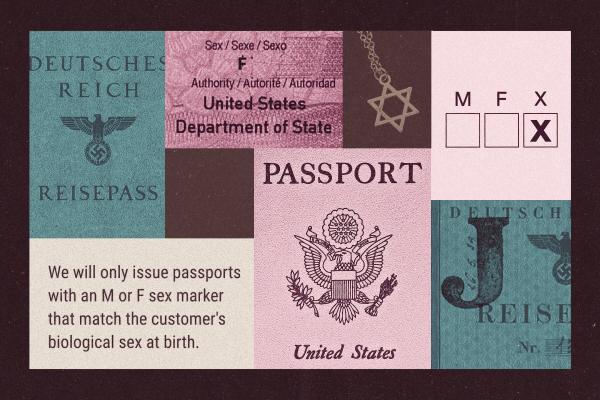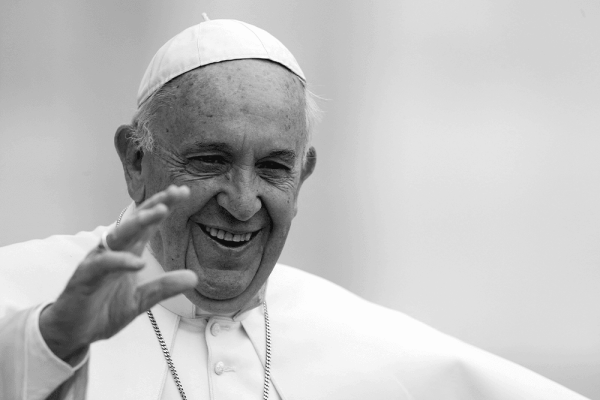A new study published in Christianity Today claims to debunk dominant narratives around the 81 percent of white evangelicals who voted for Donald Trump in 2016. New York Times columnist David Brooks shared it and concluded: “Many Evangelicals voted for Trump, reluctantly, because of economics and health care more than abortion and social issues.” If this sounds too good to be true, it’s because it is.
Conducted by the Billy Graham Center Institute and LifeWay Research, this study aims to clarify why evangelicals voted for Trump. But the study itself is mystifying. Even though an increasing amount of studies find that racial resentment drives Trump supporters more than other factors such as economic anxiety, this new study asks no questions related to racism or xenophobia. It purports to elucidate the motivations of the 81 percent but doesn’t even bother to separate its evangelical respondents by race.
The study’s authors, Ed Stetzer and Andrew MacDonald, polled Americans in three categories: those who self-identify as evangelicals, those with evangelical beliefs, and those who neither see themselves as evangelicals nor hold certain core evangelical theological views. Respondents are classified as “evangelical by belief” based on their agreement with statements related to the Bible, Jesus Christ, and salvation.
While pollsters typically categorize evangelicals according to self-identification, places like The Barna Group and LifeWay Research create extra layers of sorting according to belief. In principle, the latter method has its advantages. One can track discrepancies based on belief and produce richer data. Nevertheless, issues can arise with how belief is defined and who gets to define it.
According to Stetzer and MacDonald:
Unless specified otherwise, references to evangelicals in this study include only a multiethnic group of respondents classified as evangelical by belief according to the National Association of Evangelicals research protocol.
The study’s findings are based on a colorblind lumping of all evangelicals according to belief. Therefore, this actually makes it harder to determine and compare what motivated white evangelicals as opposed to evangelicals of color in the 2016 presidential election.
Additionally, the study potentially recruits Christians of color — who would otherwise not identify as evangelical — into its category of “evangelical” respondents. For example, if a black member of the African Methodist Episcopal Church matches the belief criteria of the study, then they can be counted alongside a white member of the Southern Baptist Convention.
The study appears to imagine a diverse, unified evangelicalism where none exists. What if being evangelical is defined as much by politics, culture, history, and segregated institutions as it is by belief? This might explain why some Christians of color who share conservative theological beliefs with white evangelicals are reluctant to self-identify as evangelical.
Even if we were to only consider self-identifying evangelicals who share belief as defined by LifeWay, I think that motivations and views would diverge by race; 80 percent of white evangelicals have completely white core social networks. As a result of the 2016 election and the direction of the Republican Party, prominent evangelicals of color have distanced themselves from or questioned their unity with white evangelicals.
Historian Kristin Du Mez has persuasively argued that evangelicalism should be considered an imagined religious community. There are multiple conflicting definitions of it being made from invested players. “The primary question, then,” Du Mez writes, “isn’t which definition is ‘correct,’ but rather which imaginings have more power to shape other people’s imaginings.”
During a particular historical moment, evangelicals became associated with the “pro-life” politics of the Religious Right. Yet, there’s a strong case for believing that the Religious Right was initially motivated by racism more than the issue of abortion. Today, Stetzer and MacDonald claim that more evangelicals casted their votes in 2016 based on issues like the economy (17 percent) or healthcare (11 percent), in comparison to abortion (5 percent). Any racial or cultural layers in contemporary evangelical motivation are not only ignored but obscured by their framing.
“Notably,” Stetzer and MacDonald state, “about 1 in 3 American evangelicals by belief today is a person of color, whose views get overlooked in discussions about how white evangelicals voted.”
The study argues that it includes overlooked evangelicals of color, but it includes them as pawns that shore up the reputation of white evangelicals. Christians of color end up providing cover for the demographic that has consistently demonstrated the highest approval for Trump, 52 percent of whom say a majority of the U.S. population being nonwhite will be a negative development.
The fact that Stetzer and MacDonald can attempt to assess evangelical motivations in this national climate without considering racism is astounding. But that they want to leverage this study to debunk narratives around the 81% of white evangelicals who voted for Trump is a cruel joke.
Are white evangelicals attempting a cheap rebranding ploy? It reminds me of a picture I saw on Twitter of a logo printed on an airplane. Dripping with irony, it said: “Operated by White. Coloured by You.”
Got something to say about what you're reading? We value your feedback!







